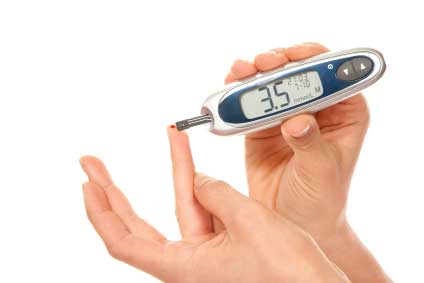
29 Nov Xylitol and General Medicine
Your Mouth is the Gateway to the Rest of Your Body
Aside from the oral health benefits of xylitol it can also help in a wide range of number of diseases and conditions, including wound healing, upper-respiratory health such as middle ear infections in children, weight loss, osteoporosis, respiratory health and stabilization of blood sugar in those with diabetes and hypoglycemia
Otitis Media (Ear infections)

One of the main ways bacteria enter the body is through the nose and mouth.. When harmful bacteria make their home in the upper respiratory passages, they multiply—and this can lead to upper respiratory infection and disease.
Approximately ½ of all babies suffer from at least one painful ear infection during their first year of life. The addition of xylitol to saline nasal spray reduces the bacteria, pollutants and irritants from sticking to the tissue and stimulates our own defensive washing of the nose. Additionally, xylitol decreases the concentration of salt in the airway surface fluid which helps our own antibiotic substances to be more effective.
A number of well documented studies show that regular use of xylitol nasal spray results in fewer respiratory infections and easier breathing.
Xylitol, when used in either a nasal spray or nasal wash, prevents bacteria from sticking to the nasal passages and helps the body remove them, reducing the risk of infection.
Using a xylitol nasal spray regularly also hydrates the nasal passages and helps flush out airborne pollutants that can trigger asthma and allergies. It can also help shrink swollen membranes to allow easy nasal breathing, which is important for developing dental arches in growing children.
Reducing periodontal disease–and heart disease?

Bacteria causing periodontal disease live and multiply beneath the gums of otherwise healthy individuals; most people do not know they have a problem. One of the earliest signs of periodontal disease is bleeding when brushing. People with this problem can lose their teeth early because the gums that help to hold them in place get weaker and less effective with this infection.
Cardiac (Heart) Health
Bacteria under the gums have ready access to the body’s circulation and are one of the major causes of the inflammation that can lead to heart attacks and stroke. Doctors like Bradley Bale, write about how to prevent heart attacks, (Beat the Heart Attack Gene: The Revolutionary Plan to Prevent Heart Disease, Stroke, and Diabetes) and encourage the regular use of oral xylitol to help prevent these problems.
Insulin Resistance And Diabetes
 Diabetes. If you don’t have it, you probably know someone who does. Type 2 diabetes—also known as adult-onset diabetes—has become an epidemic in New Zealand. More frightening still, type 2 diabetes, once rare among people under the age of 20, is being diagnosed more frequently in children and teens.
Diabetes. If you don’t have it, you probably know someone who does. Type 2 diabetes—also known as adult-onset diabetes—has become an epidemic in New Zealand. More frightening still, type 2 diabetes, once rare among people under the age of 20, is being diagnosed more frequently in children and teens.
Type 2 diabetes usually begins as insulin resistance, a disorder in which cells no longer respond to normal levels of insulin. As the need for insulin rises, the pancreas can gradually lose its ability to produce it.
Insulin resistance leads to a combination of problems called “metabolic syndrome” which include high blood sugar, high triglycerides, high blood pressure, abdominal obesity, high LDL with low HDL cholesterol, and can progress to type 2 diabetes and/or associated complications such as heart disease.
People suffering from these conditions are sensitive to foods with a high glycemic index (GI) – a rating scale used to indicate how quickly a particular food raises blood sugar: the higher the number, the faster the rise. Glucose has a GI of 100. Refined white sugar – sucrose — has a GI of 65. Xylitol, on the other hand, has a GI of just 7, and therefore a low insulin index. This means that xylitol is absorbed more slowly than sugar, so it does not contribute to a rapid spike in blood sugar levels.
Several studies have found that, since xylitol consumption doesn’t increase blood sugar levels, it is an excellent tool for diabetics looking for tasty and convenient ways to control their blood glucose. And since it can be measured cup for cup just like sugar, it’s a useful bulk sweetener for anyone with diabetes or insulin resistance.
Before undertaking any changes patients should consult their healthcare professional first
Weight Loss

Unless you have been living under a rock you don’t need to be reminded about the growing obesity problem, not only in NZ but world-wide.
The FOE campaign has been going for over 10 years aiming at getting people to decrease the amount of fat in their diets. More recently we have seen the surge in documentaries and TV bulletins about the contribution that sugar has also made to this crisis.
Weight is only part of the problem because as we all know being overweight comes with other problems such as Diabetes, Cardiovascular disease etc
Whilst xylitol is not the be all and end all it could be beneficial for those of us who still like to indulge and not feel guilty about the odd sweet treat. The downfall of many with weight loss goals is a sweet tooth. Xylitol, if incorporated into your weight loss program, can have a dramatic effect and can be substituted into a wide variety of foods and drinks, including coffee, tea, smoothies, cereals or snacks.
But don’t forget – even though Xylitol contains 40% less calories than normal sugar it isn’t an excuse to go on a sugar binge!
Because xylitol is slowly and incompletely absorbed and metabolized in the body, it also acts much like soluble dietary fiber, improving gut health and increasing satiety. This helps you feel full longer after eating. There is preliminary evidence suggesting that xylitol can curb your cravings for fined white sugar,
Any weight loss program should not be undertaken without the advice of a health professional and should include regular exercise.
Note: Xylitol is a food – not a drug; therefore, there are no label claims for any xylitol health benefits products
